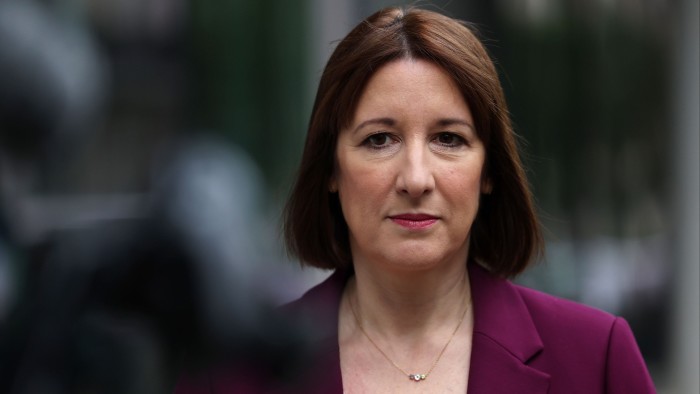The sole caretaker of the pyramids at Meroë, a former capital of the ancient Kingdom of Kush, is the only person standing between some of Sudan’s greatest art treasures and rampaging armies accused of looting priceless antiquities from museums across the country.
In times of peace, Meroë, 200km north of Khartoum along the Nile, drew intrepid tourists to see the carvings and hieroglyphs housed in some of the 200 pyramids — more than in the whole of Egypt — which were constructed nearly 2,500 years ago. Nomads played zumbara flutes to visitors, who crossed the sand dunes of the Nubian Desert in camel caravans en route to nearby temples.
But since civil war broke out in April 2023, the archeological site has been deserted and Fozia Khalid, the sole caretaker, has been braced for its destruction.
“The militias are not far,” said Khalid, a woman in her sixties, referring to troops from the Rapid Support Forces, a paramilitary group that has taken over much of the country and left a trail of wreckage and alleged ethnic cleansing in its wake.
“Nobody has come here in over a year — all is dead here now,” she said from what remains of a welcome centre built in 2018 using Qatari funding, at a time when hopes for tourism in the region were rising.
“I fear they may come and ravage centuries of history,” Khalid said.

Ikhlas Abdel-Latif Ahmed, head of museums at Sudan’s national antiquities authority, said that RSF soldiers had stolen artefacts from the recently renovated Sudan National Museum in the capital Khartoum in what she called “a major looting operation”.
Many of the objects taken from the museum were loaded on to trucks and smuggled across the border into South Sudan, Ahmed said.
The RSF, which locals say has forces less than 20km from the pyramids, has taken over Khartoum and much of Darfur, forcing the official government to retreat 800km north-east to Port Sudan on the Red Sea coast. RSF drones have been shot down on the way to Shendi, not far from Meroë. The RSF did not reply to requests for comment about the alleged looting.
The national museum was opened more than 50 years ago to house objects rescued from an area flooded by the construction of Egypt’s Aswan dam. Among the 100,000 pieces it houses are those from the Palaeolithic, Meroë, Christian and Islamic eras, as well as artefacts, such as ushabti burial figurines of Kushite kings from Kerma, a capital in the north of Sudan that predated Meroë. The Kushite kingdom was known for its iron work.
“Unfortunately, all this has become a target of the war,” Ahmed said.

Reports of looting have become so persistent that Unesco issued a statement in September warning that the “threat to [Sudan’s] culture appears to have reached an unprecedented level”.
The UN cultural body called on art market professionals and members of the public “to refrain from acquiring or taking part in the import, export or transfer of ownership of cultural property from Sudan”. Its entreaty followed concerns that some of the antiquities may have ended up for sale online disguised as Egyptian artefacts.
“Any illegal sale or displacement of these cultural items would result in the disappearance of part of the Sudanese cultural identity and jeopardise the country’s recovery,” Unesco said.
The war in Sudan, which has killed an estimated 150,000 people and pushed 10mn into exile, now threatened the country’s entire cultural heritage, said Zeinab Badawi, a Sudanese-British author of An African History of Africa and president of the School of Oriental and African Studies in London.
Much of Sudan’s culture, long under-appreciated by what she called Egypt-centric scholars, could be lost forever, she said.
“It breaks my heart. I can hardly even think about it,” Badawi added. “Today Sudan is a country that’s synonymous with conflict, but in the ancient world it was the centre of an amazing civilisation.”

Sudan was home to some of Africa’s earliest human settlements, dating back to as early as 8,000BC, by which time it was already producing “exquisitely decorated” pottery, Badawi said. By 2,500BC, the Kingdom of Kush was established at Kerma, present-day Karima, in northern Sudan. The Kushites even ruled Egypt for more than a century after conquering it in the eighth century BC, she said.
Reports of widespread looting of artefacts, including at a museum in Nyala, the capital of South Darfur, and damage to the Museum of the House of the Caliph Abdullah Al-Taayshi in Omdurman, recalls the wholesale theft of artefacts during recent wars in Iraq, Syria and Mali.
The Iraq Museum in Baghdad was looted after the 2003 US invasion. Although a 4,000-year-old statue of Sumerian king Entemena was later returned to the museum, many stolen pieces remain missing. The museum only reopened in 2015.

In 2016, Ahmad Al Faqi Al Mahdi, an Islamist militant, became the first person to be tried for the war crime of destroying antiquities when he was sentenced to nine years in prison by the International Criminal Court for demolishing historic monuments in Timbuktu, Mali.
Meroë itself has a history of both looting, and being looted. In 1834, the tops of dozens of pyramids at the site were blown up by Italian treasure hunter Giuseppe Ferlini.
The British Museum in London, much of whose collection was derived from plunder, includes the Meroë Head, a large bronze head depicting the first Roman emperor Augustus, which was taken in 1910 from Meroë where it ended up after being looted from Roman Egypt in 24BC.

Amani Gashi, an archaeologist and co-ordinator of cultural protection initiative Safeguarding Sudan’s Living Heritage Against Conflict and Climate Change, said none of the country’s treasures was safe. That included the Temple of Amun at Jebel Barkal in Karima, as well as the lion-headed god Apedemak in Naqa and the elephant carving at the temple at Musawwarat, near Meroë.
“All the objects that have been stolen are unique pieces,” Gashi said. “All the archeological sites are now at risk due to the war.”














































































































































































You must be logged in to post a comment Login